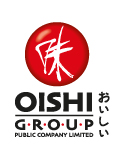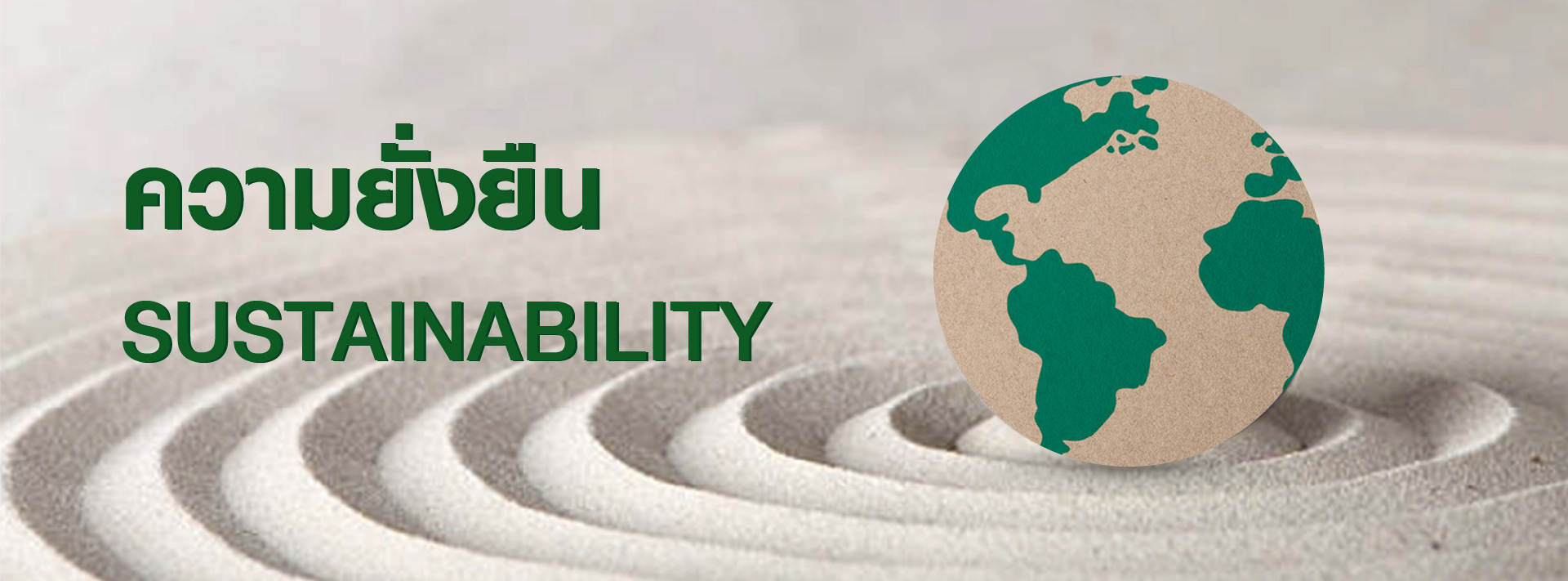Climate Change
OISHI has a goal to reduce greenhouse gas emissions both direct and indirect (Scope 1 and 2) to be zero by 2040. To achieve the goal, OISHI has set measures to reduce greenhouse gas emissions as follows:
| Factory | Management Approach | 2022 Results |
|---|---|---|
| Beverage Factory Navanakorn Industrial Estate Pathum Thani Province | Improve power system by installing a device to control the operation of the pump in the RO (Reverse Osmosis) water production in accordance with the rate of use. | Reduce the use of electricity by 134,822 Kilowatt hours per year and reduce greenhouse gas emissions by 56,706 kg. of carbon dioxide equivalent per year or equivalent to 3,296 trees planted. |
| Improve power system by installing a high-efficiency motor in the water cooling system./td> | Reduce the use of electricity by 506,590 Kilowatt hours per year and reduce greenhouse gas emissions by 213,071 kg. of carbon dioxide equivalent per year or equivalent to 12,387 trees planted. | |
| Improve the air conditioning system in the office building, by installing split-type air conditioning system instead of using a central air conditioning system (water cooled chiller system). | Reduce the use of electricity by 665,000 Kilowatt hours per year and reduce greenhouse gas emissions by 279,699 kg. of carbon dioxide equivalent per year or equivalent to 16,261 trees planted. | |
| Improve the production process of the UHT boxed beverage production line to be able to produce products continuously for a long time. It helps reduce cleaning frequency without disassembling (Cleaning in Place). | Reduce the use of electricity by 525,000 Kilowatt hours per year and reduce greenhouse gas emissions by 220,815 kg. of carbon dioxide equivalent per year or equivalent to 12,838 trees planted. | |
| Beverage Factory Wang Muang District Saraburi Province | Bring renewable energy from the sun to generate electricity for using in the factory. | Reduce the use of electricity by 1,258,564 Kilowatt hours per year and reduce greenhouse gas emissions by 629,156 kg. of carbon dioxide equivalent per year or equivalent to 36,579 trees planted. |
| Improve the residual air flow from the bottle blowing process, by bringing the remaining air from the bottle-blowing process recycled back into the power system. | Reduce the use of electricity by 192,000 Kilowatt hours per year and reduce greenhouse gas emissions by 95,981 kg. of carbon dioxide equivalent per year or equivalent to 5,580 trees planted. | |
| Beverage Factory Amata Nakorn Industrial Estate Chonburi Province | Improve the drinking water production process to be able to produce products continuously for a longer time. It helps reduce cleaning frequency without disassembling (Cleaning in Place). | Reduce the use of electricity by 98,400 Kilowatt hours per year and reduce greenhouse gas emissions by 49,190 kg. of carbon dioxide equivalent per year or equivalent to 2,860 trees planted. |
| OISHI Food Service Factory (Central Kitchen) Ban Bueng District Chonburi Province | Bring renewable energy from the sun to generate electricity for using in the factory. | Reduce the use of electricity by 1,177,895 Kilowatt hours per year and reduce greenhouse gas emissions by 588,829 kg. of carbon dioxide equivalent per year or equivalent to 34,324 trees planted. |
From effective climate management, OISHI has received the following certifications for effective climate management:
4 Factories Received the Corporate Carbon Footprint Mark
3 Products Received the Product Carbon Footprint Mark
2 Products Received a Carbon Footprint Reduction Mark
• Industrial Enterprise Carbon Footprint Certificate of the Greenhouse Gas Management Organization
(Public Organization) (Carbon Footprint for Organization: CFO): OISHI Trading Company Limited with beverage factories located in Navanakorn Industrial Estate, Pathum Thani Province; Amata Nakorn Industrial Estate, Chonburi Province; and Wang Muang District, Saraburi Province, and OISHI Food Service Factory (Central Kitchen) located in Ban Bueng District,
Chonburi Province, have established knowledge and understanding of the principles and methods of assessing corporate carbon footprint, to be able to accurately calculate the amount of carbon footprint generated by the operation. This will lead to the formulation of guidelines for managing the organization’s greenhouse gas emissions appropriately
and effectively.
• Certificate, Certification Mark or Carbon Footprint of Products (CFP) Label from Thailand Greenhouse Gas Management Organization (Public Organization): OISHI Green Tea drink products, size 380 ml., original flavor, honey-lemon flavor and Kyoho Grape flavor with Nata de coco, passed the assessment and certified the amount of greenhouse gas emissions.
• Certificate of Carbon Footprint Reduction Product or Carbon Footprint Reduction (CFR) Label from the Greenhouse Gas Management Organization (Public Organization): OISHI Green Tea drink products, size 380 ml., honey-limon flavor, and
Kyoho Grape flavor with Nata de coco, passed the assessment and certified to reduce greenhouse gas emissions.
• Certificate of Responsibility Leadership in Sustainability under the “PackBack: Taking Back the Packaging for Sustainable Days” project by the Minister of Natural Resources and Environment. This certificate is obtained by managing packaging in order to achieve circularity in accordance with the Circular Economy (CE) with the principle of Extended Producer Responsibility (EPR) through the work of the Thailand Institute of Packaging and Recycling Management for Sustainable Environment, The Federation of Thai Industries, or TIPMSE, and a network of 66 organizations.
• Greenhouse gas emission certificate from the Ministry of Natural Resources and Environment: OISHI's factories emit appropriate and reduced greenhouse gas emissions as follows: The beverage factory in Navanakorn Industrial Estate, Pathum Thani Province, has reduced greenhouse gas emissions to 25,022 tons of carbon dioxide equivalent per year, down from the previous 25,848 tons of carbon dioxide equivalent per year; The beverage factory in Amata Nakorn Industrial Estate, Chonburi Province, emits approximately 1,577 tons of carbon dioxide equivalent per year, down from the previous 1,329 tons of carbon dioxide equivalent per year; The Wang Muang beverage factory in Saraburi province reduced its greenhouse gas emissions to approximately 17,907 tonnes of carbon dioxide equivalent per year, down from the previous 19,699 tonnes of carbon dioxide equivalent per year; and OISHI Food Service (central kitchen), Ban Bueng District, Chonburi Province, with greenhouse gas emissions reduced to about 8,335 tons of carbon dioxide equivalents per year, down from the previous 9,140 tons of carbon dioxide equivalents per year. All factories have ECEE Co., Ltd. that has passed the criteria and is certified by Thailand Greenhouse Gas Management Organization (TGO) to verify the organization's carbon footprint.
Table showing the amount of greenhouse gas emissions
| Factory | Year 2021 : The amount of greenhouse gas emissions (carbon dioxide equivalent per year) | Year 2022 : The amount of greenhouse gas emissions (carbon dioxide equivalent per year) | % change |
|---|---|---|---|
| Beverage factory in Navanakorn Industrial Estate, Pathum Thani Province | 25,848 | 25,022 | Down 3.2% |
| Beverage factory in Wang Muang District, Saraburi Province | 19,699 | 17,907 | Down 9.1% |
| OISHI Food Service Factory (Central Kitchen) in Ban Bueng District, Chonburi Province | 9,140 | 8,335 | Down 8.8% |


